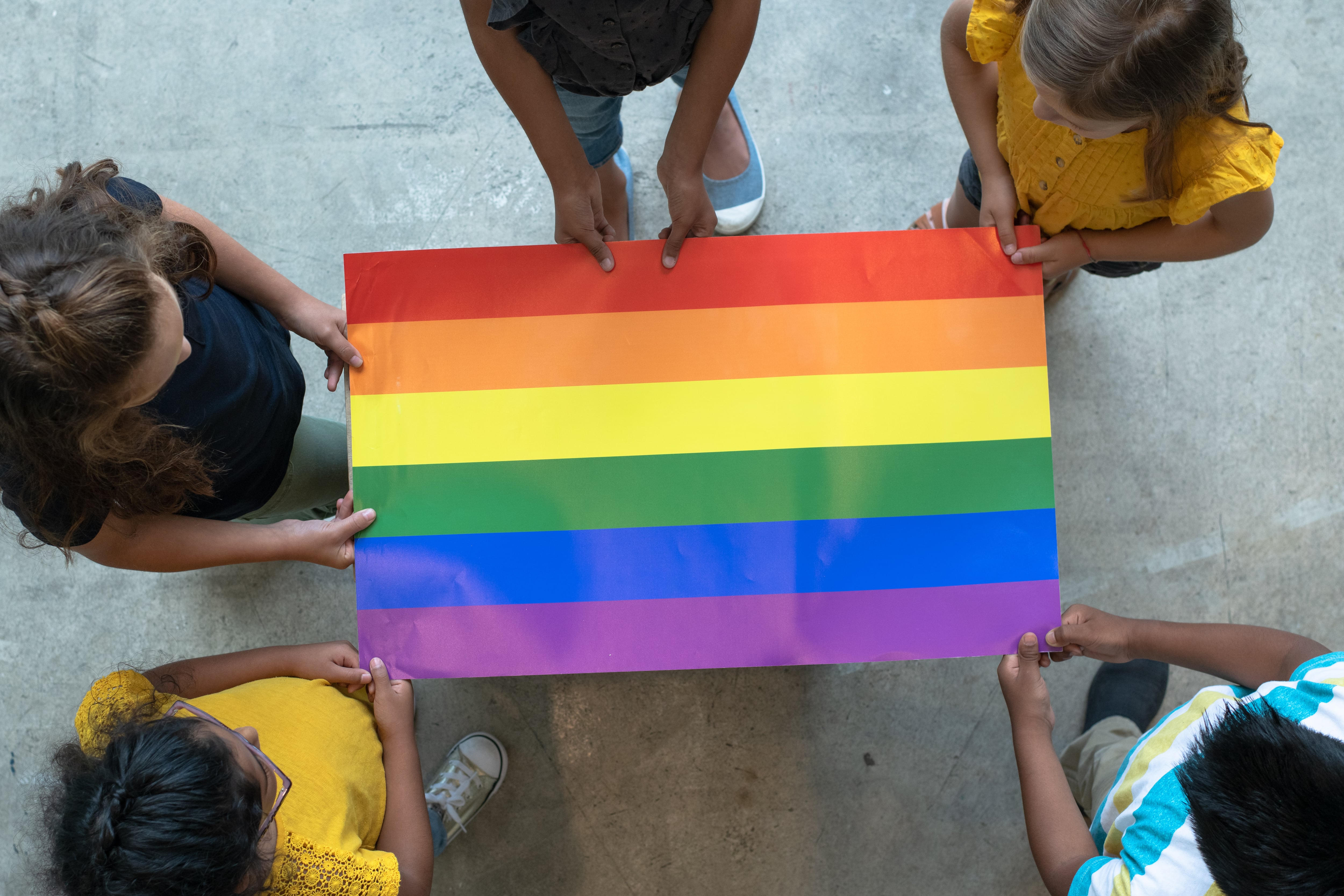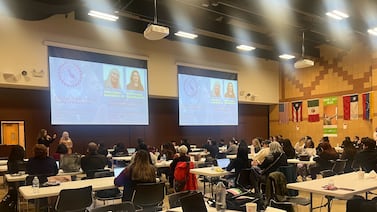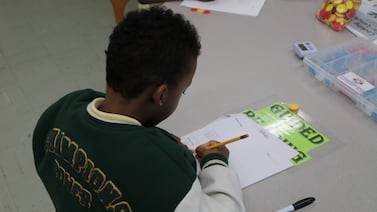Sign up for Chalkbeat New York’s free daily newsletter to keep up with NYC’s public schools.
Families at a Brooklyn elementary school say the school’s administration has been resisting their efforts to establish an LGBTQ+ club, despite a city official acknowledging to one parent that students were entitled to the club.
Johanna Neufeld, whose daughter recently finished kindergarten at P.S. 139 in Flatbush, said families began advocating more than a year ago for a Rainbow Club. Parents and students sought to establish a space for those who identify as LGBTQ+, or who have family members within the LGBTQ+ community.
But those efforts have stalled, with administrators introducing a growing list of obstacles, said Neufeld. As a result, she feels her family’s experience and those of others are being excluded.
“It’s really important for kids to feel seen, and validated, and have their home life validated,” Neufeld said. “We do a lot of stuff around food, and culture, and peoples’ backgrounds, and where their families are from, and it’s really important, and it’s been wonderful for my daughter… But there hasn’t been an opportunity for her to say, ‘I have two moms, and this is how we live, and this is our experience.’”
The school’s principal did not respond to a request for comment. Education Department officials did not comment on why the P.S. 139 club has not been approved.
The continued push for the club comes as a petition urging city, district, and school officials to support its formation garnered more than 65 signatures from families at the roughly 700-student school — with signees sharing hopes that the club will offer a supportive and affirming space for students to learn about and celebrate all identities. Studies have found that such clubs, often referred to as gender and sexualities alliances, or GSAs, can have a positive impact on student mental health and youth development.
“Broadly, these clubs exist like any other,” said Clark Wolff Hamel, director of education programs at PFLAG NYC, an organization that supports LGBTQ+ youth. “They allow students a space to find other people who share similar interests. That’s the point of an extracurricular club: To establish community.
“Establishing community at young ages is incredibly important, because those are the ages at which kids are starting to understand a sense of identity — not just personal identity, but family identity,” he added. “There are kids who come from LGBTQ+ families — whether it’s families with same-gender parents, whether it’s families who have siblings who are part of the community, whatever that looks like — [these clubs help them] understand that they are not alone in it.”
Still, in spite of the potential benefits to school communities, Hamel said he’s encountered many schools that resist efforts to establish them due to a fear of pushback from other families.
GSAs and other LGBTQ+ student groups have existed in schools for decades — with a group of New York City students forming one of the first such clubs at their high school in 1972. Across the country, the number of schools with GSAs can vary significantly between states. New York was among just a handful of states to report that more than half of their secondary schools had a GSA in 2018, according to one analysis of U.S. Centers for Disease Control and Prevention data.
The city’s Education Department did not provide data on the number of GSAs in New York City schools.
Initially, P.S. 139 administrators told families they couldn’t establish the club without a faculty advisor and without funding to support it, Neufeld said. But when parents addressed each of those concerns — finding a teacher willing to run it, and securing funding from the Parent Association — the school continued to resist the club’s creation.
Eventually, families were offered a “Respect for All” club instead, with a curriculum that would address LGBTQ+ issues in a limited capacity, while largely focusing on combating bullying and creating a supportive student community, Neufeld said.
“Those are all important things, but not what we were asking for,” she said.
Orli LeWinter, a member of the Parent Association executive board, said the PA has not been directly involved with efforts to establish the club, but confirmed it will fund the club if it is approved.
Under federal law, students generally have a right to form GSAs in secondary schools. Though the Equal Access Act’s club protections only explicitly refer to secondary schools, Hamel said there has been “a massive precedent set in NYC that … elementary schools should also be protected in the same ways.”
And emails shared with Chalkbeat show an official from the city’s Education Department confirming to Neufeld in January that students at the school are “entitled to affinity group spaces” under federal law.
“Students within NYCPS are entitled to affinity group spaces, as stated in the Federal policy, the Equal Access Act,” wrote a member of the Education Department’s Office of Safety & Youth Development, instructing local district officials to help facilitate the creation of the club. “Please contact the school and make them aware of this legal compliance, being that we are a public school system.
“Please also inform them that NYC Public Schools is in full support of GSA groups at all grade levels,” the Education Department official added, according to the email obtained by Chalkbeat.
Still, despite the involvement of city and district officials, the club has not been formed, Neufeld said.
City officials told Chalkbeat there is no policy regarding GSAs in elementary schools, adding the Education Department’s LGBTQ Supports Team provides programming and general assistance to schools to ensure they meet the needs of LGBTQ+ students.
Neufeld expressed frustration with school administrators at P.S. 139, as well as the city’s Education Department and officials in her district — all of whom she noted have been made aware of the situation. It remains unclear why the club cannot be formed at the school, she added.
“What has become clear is that the administration does not want it to be something that is identifiably pro-LGBTQ,” Neufeld said.
Julian Shen-Berro is a reporter covering New York City. Contact him at jshen-berro@chalkbeat.org.






